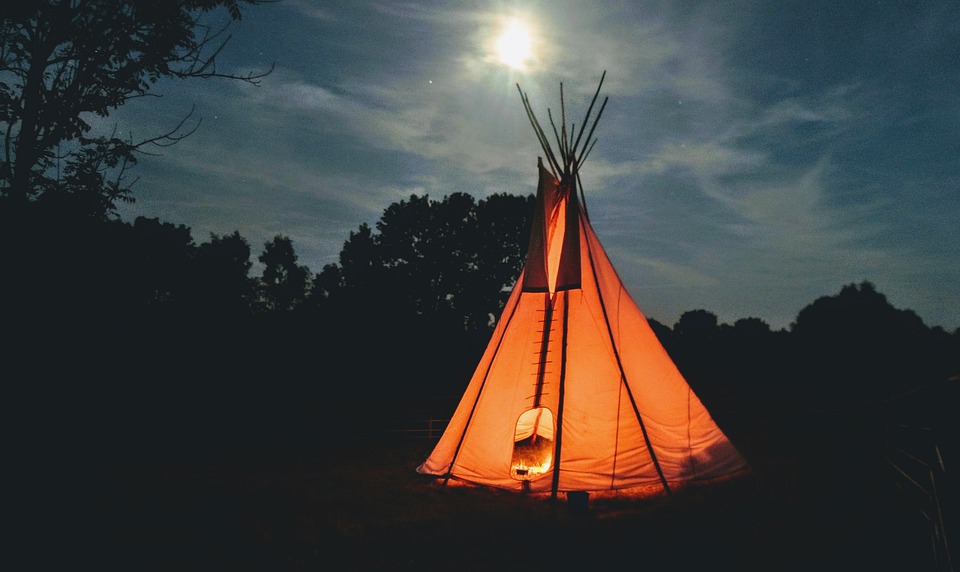Off-the-grid camping, also known as primitive camping or wild camping, is a reemerging trend in outdoor recreation. This form of camping involves disconnecting from modern amenities and immersing oneself in nature without relying on electricity, Wi-Fi, or other technology-driven comforts. As our lives become increasingly fast-paced and technology-dependent, more people are craving a simpler, more authentic outdoor experience. Off-the-grid camping provides an opportunity to unwind, reconnect with nature, and enjoy the beauty of solitude.
Benefits of Off-the-Grid Camping
1. Escaping the Daily Grind: Off-the-grid camping allows individuals to escape the hustle and bustle of everyday life. By stepping away from the pressures of work and technology, campers can find solace in the tranquility of nature. The peacefulness that comes with being unplugged can have a positive impact on mental well-being and stress reduction.
2. Increased Self-Sufficiency: Off-the-grid campers learn to rely on their own skills and resourcefulness. From building a fire to purifying water and setting up camp, the self-sufficiency required in this type of camping fosters personal growth and independence. It can also help campers develop problem-solving skills and boost their confidence.
3. Connection with Nature: Off-the-grid camping promotes a deep connection with nature. With no modern distractions, campers can fully appreciate the sounds, scents, and sights of their surroundings. Being immersed in nature has been shown to improve mood, reduce anxiety, and increase overall well-being. It allows individuals to appreciate the beauty of our natural world and develop a sense of stewardship towards it.
Preparing for Off-the-Grid Camping
1. Research and Planning: Before embarking on an off-the-grid camping trip, it’s essential to research the local regulations and guidelines. Some areas may require permits or have restrictions on fires or camping locations. Packing appropriate gear, including a reliable tent, sleeping bag, and cooking equipment, is crucial for a successful trip. It’s also important to plan for food and water supplies, considering the duration of the camping trip.
2. Basic Wilderness Skills: Familiarize yourself with basic wilderness skills such as navigation, first aid, and fire building. Knowing how to read a map and use a compass, as well as understanding basic first aid techniques, can enhance safety and confidence while camping off-the-grid.
3. Leave No Trace: When camping off-the-grid, it is vital to practice Leave No Trace principles. This means leaving the campsite as you found it, disposing of waste properly, and minimizing your impact on the environment. Respect for nature and other campers is essential in preserving the beauty of off-the-grid camping for future generations.
The Growing Popularity of Off-the-Grid Camping
In recent years, off-the-grid camping has gained significant popularity. Here are a few reasons why more people are seeking this outdoor experience:
1. Digital Detox: With smartphones, social media, and constant connectivity dominating our lives, off-the-grid camping provides a much-needed break from screens and notifications. It allows individuals to disconnect, recharge, and reconnect with what truly matters.
2. Authentic Outdoor Experience: Unlike established campgrounds, off-the-grid camping offers a more authentic outdoor experience. Campers have the freedom to choose their own secluded spot, away from crowds and noise. It allows them to fully immerse themselves in the wilderness, enjoying uninterrupted solitude and natural beauty.
3. Adventure and Exploration: Off-the-grid camping provides an opportunity for adventure and exploration. Campers can venture into uncharted territories, often off the beaten path, and discover hidden gems of nature. Exploring new landscapes, hiking trails, and encountering wildlife creates unforgettable memories and a sense of adventure.
FAQs
1. Is off-the-grid camping safe?
Off-the-grid camping can be safe if proper precautions are taken. It is essential to conduct thorough research, be adequately prepared, and follow safety guidelines. Familiarize yourself with potential hazards, learn basic wilderness skills, and inform someone of your camping plans.
2. What gear do I need for off-the-grid camping?
Some essential gear for off-the-grid camping includes a reliable tent, sleeping bag, camping stove, first aid kit, water filtration system, and appropriate clothing for the weather. Additionally, a map, compass, and emergency communication devices such as a satellite phone or GPS can be valuable tools.
3. Are there any restrictions on off-the-grid camping?
Off-the-grid camping regulations vary depending on the location. Some areas may have restrictions on camping permits, campfire usage, or backcountry camping. It’s important to research and adhere to the specific regulations of the intended camping area to avoid any fines or negative impacts on the environment.
4. Is off-the-grid camping suitable for beginners?
Off-the-grid camping can be suitable for beginners, although it is important to start with shorter trips and gradually build up skills and experience. It is recommended to familiarize oneself with basic wilderness skills, prepare adequately, and choose a camping site suitable for beginners.
5. Is off-the-grid camping for everyone?
Off-the-grid camping may not be for everyone. It requires embracing a simpler, more primitive way of living and being comfortable without modern comforts. However, for those seeking a break from the fast-paced world and a chance to connect with nature and themselves, off-the-grid camping can be a rewarding and transformative experience.




